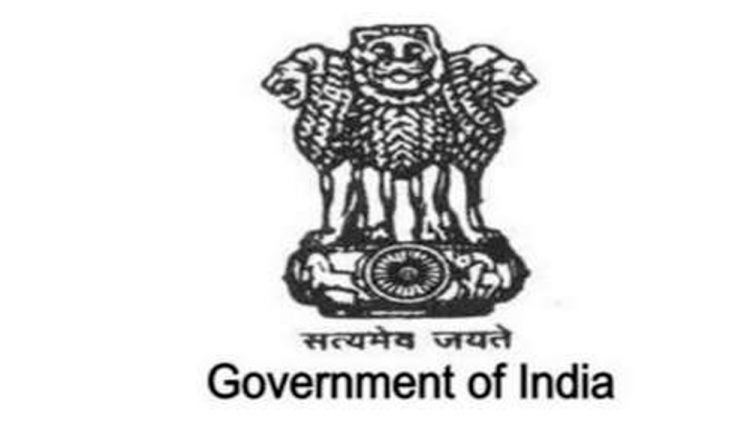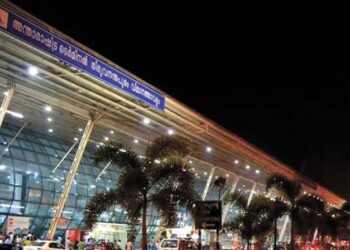New Delhi: The Union Cabinet on Tuesday approved the National Education Policy 2020 making way for large scale, transformational reforms in both school and higher education sectors. This is the first education policy of the 21st century and replaces the thirty-four year old National Policy on Education (NPE), 1986.
Built on the foundational pillars of Access, Equity, Quality, Affordability and Accountability, this policy is aligned to the 2030 Agenda for Sustainable Development and aims to transform India into a vibrant knowledge society and global knowledge superpower by making both school and college education more holistic, flexible, multidisciplinary, suited to 21st century needs and aimed at bringing out the unique capabilities of each student.
NEP 2020 emphasizes on ensuring universal access to school education at all levels- pre school to secondary. Infrastructure support, innovative education centres to bring back dropouts into the mainstream, tracking of students and their learning levels, facilitating multiple pathways to learning involving both formal and non-formal education modes, association of counselors or well-trained social workers with schools, open learning for classes 3,5 and 8 through NIOS and State Open Schools, secondary education programs equivalent to Grades 10 and 12, vocational courses, adult literacy and life-enrichment programs are some of the proposed ways for achieving this. About 2 crore out of school children will be brought back into main stream under NEP 2020.
With emphasis on Early Childhood Care and Education, the 10+2 structure of school curricula is to be replaced by a 5+3+3+4 curricular structure corresponding to ages 3-8, 8-11, 11-14, and 14-18 years respectively. This will bring the hitherto uncovered age group of 3-6 years under school curriculum, which has been recognized globally as the crucial stage for development of mental faculties of a child. The new system will have 12 years of schooling with three years of Anganwadi/ pre schooling.
NCERT will develop a National Curricular and Pedagogical Framework for Early Childhood Care and Education (NCPFECCE) for children up to the age of 8 . ECCE will be delivered through a significantly expanded and strengthened system of institutions including Anganwadis and pre-schools that will have teachers and Anganwadi workers trained in the ECCE pedagogy and curriculum. The planning and implementation of ECCE will be carried out jointly by the Ministries of HRD, Women and Child Development (WCD), Health and Family Welfare (HFW), and Tribal Affairs.
The school curricula and pedagogy will aim for holistic development of learners by equipping them with the key 21st century skills, reduction in curricular content to enhance essential learning and critical thinking and greater focus on experiential learning. Students will have increased flexibility and choice of subjects. There will be no rigid separations between arts and sciences, between curricular and extra-curricular activities, between vocational and academic streams.
Vocational education will start in schools from the 6th grade, and will include internships.
A new and comprehensive National Curricular Framework for School Education, NCFSE 2020-21, will be developed by the NCERT.
The policy has emphasized mother tongue/local language/regional language as the medium of instruction at least till Grade 5, but preferably till Grade 8 and beyond. Sanskrit to be offered at all levels of school and higher education as an option for students, including in the three-language formula. Other classical languages and literatures of India also to be available as options. No language will be imposed on any student. Students to participate in a fun project/activity on ‘The Languages of India’, sometime in Grades 6-8, such as, under the ‘Ek Bharat Shrestha Bharat’ initiative. Several foreign languages will also be offered at the secondary level. Indian Sign Language (ISL) will be standardized across the country, and National and State curriculum materials developed, for use by students with hearing impairment.
Assessment Reforms
NEP 2020 envisages a shift from summative assessment to regular and formative assessment, which is more competency-based, promotes learning and development, and tests higher-order skills, such as analysis, critical thinking, and conceptual clarity. All students will take school examinations in Grades 3, 5, and 8 which will be conducted by the appropriate authority. Board exams for Grades 10 and 12 will be continued, but redesigned with holistic development as the aim. A new National Assessment Centre, PARAKH (Performance Assessment, Review, and Analysis of Knowledge for Holistic Development), will be set up as a standard-setting body.
Equitable and Inclusive Education
NEP 2020 aims to ensure that no child loses any opportunity to learn and excel because of the circumstances of birth or background. Special emphasis will be given on Socially and Economically Disadvantaged Groups(SEDGs) which include gender, socio-cultural, and geographical identities and disabilities. This includes setting up of Gender Inclusion Fund and also Special Education Zones for disadvantaged regions and groups. Children with disabilities will be enabled to fully participate in the regular schooling process from the foundational stage to higher education, with support of educators with cross disability training, resource centres, accommodations, assistive devices, appropriate technology-based tools and other support mechanisms tailored to suit their needs. Every state/district will be encouraged to establish “Bal Bhavans” as a special daytime boarding school, to participate in art-related, career-related, and play-related activities. Free school infrastructure can be used as Samajik Chetna Kendras












